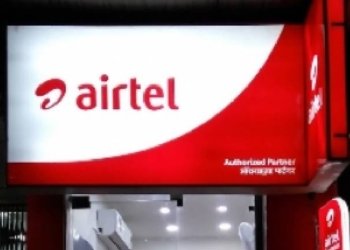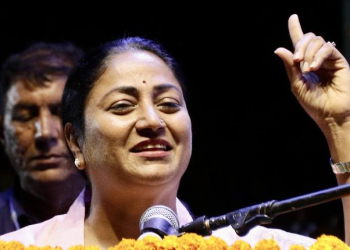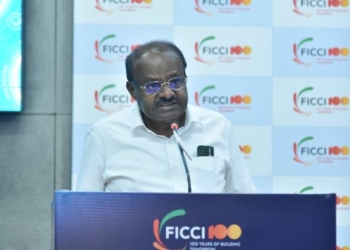New Delhi: The recent directive by the Central Board of Secondary Education (CBSE) to install “Sugar Boards” in schools is an essential public health measure that also aligns with global nutrition goals, said health experts on Tuesday.
Amid increasing cases of diabetes and obesity among young children, the CBSE, last week, instructed over 24,000 affiliated schools across India to establish sugar boards.
The Sugar Boards will provide essential information, including recommended sugar intake, the sugar content in commonly consumed foods (such as junk food and cold drinks), health risks associated with high sugar consumption, and healthier dietary alternatives.
“This initiative educates children about the dangers of excessive sugar consumption, which is a major contributor to childhood obesity and Type 2 diabetes. By clearly displaying recommended sugar intake and the sugar content in common foods, the boards promote awareness and healthier choices,” Dr Naval Vikram, Professor of Medicine, at AIIMS, New Delhi, told IANS
“Coupled with workshops and parental involvement, this approach can reshape dietary habits early in life. It’s a timely and necessary public health measure that aligns with global nutrition goals and helps build a foundation for long-term wellness among Indian children,” added the expert.
Type 2 diabetes, once only prevalent in adults and the elderly, is now more common among children.
In the letter to school principals, the CBSE attributed the alarming trend, seen particularly in the last decade, to high sugar intake, often due to the easy availability of sugary snacks, beverages, and processed foods within school environments.
The World Health Organization (WHO) recommends a reduced intake of added sugar throughout one’s life. In both adults and children, WHO recommends reducing the intake of free sugars to less than 10 per cent of total energy intake. The UN health body suggests a further reduction of the intake of free sugars to below 5 per cent of total energy intake.
“Studies have indicated that sugar constitutes 13 per cent of daily calorie intake for children aged 4 to 10 years, and 15 per cent for those aged 11 to 18 years, substantially exceeding the recommended limit of 5 per cent,” the letter said.
The CBSE noted that the “proliferation of sugary snacks, beverages, and processed foods, often readily available in school environments, contributes significantly to this excessive intake”.
The new Sugar Board will educate students about informed food choices and promote long-term health benefits among students, it said.
“I would say it is a good step but to reduce consumption of unhealthy food products lot more needs to be done, including regulation for warning labels and ban of advertising of products High in Fat, Salt, and Sugar (HFSS). Even if you focus only on schools, the canteen should be made ‘HFSS-free’,” said Dr. Arun Gupta, a New-based paediatrician, told IANS.
In addition to the risk of diabetes, the excessive consumption of sugar also contributes to obesity, dental problems, and other metabolic disorders, ultimately impacting children’s long-term health and academic performance.
Dr. Harsh Mahajan Chair-FICCI Health Services Committee, called the initiative “a timely and much-needed”.
He noted that while lifestyle-related disorders are beginning to affect children at a much earlier age, worryingly many of these conditions remain undiagnosed until much later, when irreversible damage has already occurred”. The experts also urged parents and schools to consider regular screening tests like fasting blood sugar, HbA1c, liver function, lipid profile, BMI, and waist circumference to help understand children’s health and to make early changes.
(IANS)
















